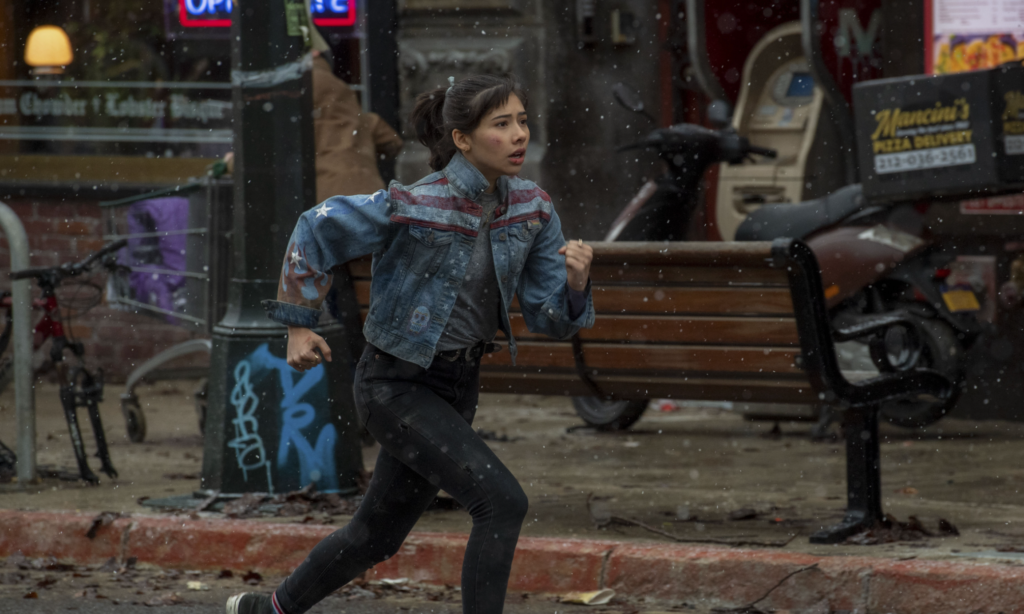“Doctor Strange in the Multiverse of Madness” marks the introduction of the MCU’s first LGBTQ+ Latina superhero, America Chavez, played by “The Baby-Sitters Club’s” Xochitl Gomez. The significance of this milestone — the fact that young people of color or kids in the queer community will see someone like themselves on-screen, in this summer’s first blockbuster — is lost on neither Gomez nor Marvel exec and “Multiverse of Madness” producer Victoria Alonso, who is part of the LGBTQ+ community herself. At the comic book flick’s Monday premiere, Gomez, Alonso, and other cast and crew members spoke to Deadline about the tremendous impact on-screen visibility, representation, inclusion, and diversity can have.
Alonso believes that if she had seen a character like America while she was growing up, she would have “had a tad more understanding of the person that I was and that I was growing into being was not invisible.” She explained, “I think visibility at any age is incredibly important whether you’re 10, 20, 30, or 80. To have your people and to have someone who says, ‘I am, and it’s OK. I am, and I am powerful. I am, and I belong.’ Alonso said, My hope today is that — as a small gift from a bunch of filmmakers that want to tell great stories — if there are any kids out there thinking even minimally that their lives are not worth it, I can honestly tell you their lives are worth it and we will celebrate it with them.”
Referring to Saudi Arabia’s ban of “Multiverse of Madness” due to a scene featuring America’s two mothers, Alonso added, “I understand that certain lands have certain rules and I live in a land where our rules are that of inclusion. And we will continue to fight for inclusion in every place, city, and state so that every kid that doesn’t see themselves can at least see a tiny little bit of who they can become.”
This sentiment is especially welcome considering Don’t Say Gay is the law of the land in Florida; Disney, which owns the MCU, dragged its feet before denouncing the draconian legislation; and anti-LGBTQ+ bills are being introduced and passed all over the United States.
Gomez spoke about the responsibility of playing such a trailblazing character. “It’s huge that I get to represent these communities that maybe haven’t felt seen before,” she remarked, describing America as “a positive representation of Latinas in particular because, in the past, there hasn’t been much of that. America is positive, charismatic, and she’s resilient.”
Her co-star, the Ugandan-British actress Sheila Atim (“The Underground Railroad”), who plays the Kamar-Taj figure Sara, is also excited about the effect her casting could have on viewers of all ages. “The importance of representation can’t be underestimated,” she stressed. “I think sometimes as adults we forget what it was like as children seeing people who resembled us. We can still feel the same thing as adults. And we’re talking particularly about universes and multiverses. If there’s ever a time to get as broad as you can, it’s now.”
Atim continued, “I think about my childhood and my experience with cinema and I was always drawn to people who looked like me. It’s just a very natural thing and it can inform you on who and what you can be or want to be. It would’ve meant a lot to me to have seen someone like Sara on-screen, so now I can channel all those feelings into being that for other people.”
According to Marvel casting director Sarah Finn, characters such as America and Sara are only the beginning. She and her associates have reportedly made inclusion a priority for the MCU. “It’s been an exciting couple of years. We’ve seen the MCU change dramatically and changes are only starting to come out now,” Finn said. “Representation is very important, we take it very seriously. And think you’re going to see a huge expansion.”
“Doctor Strange in the Multiverse of Madness” hits theaters this Friday, May 6.







